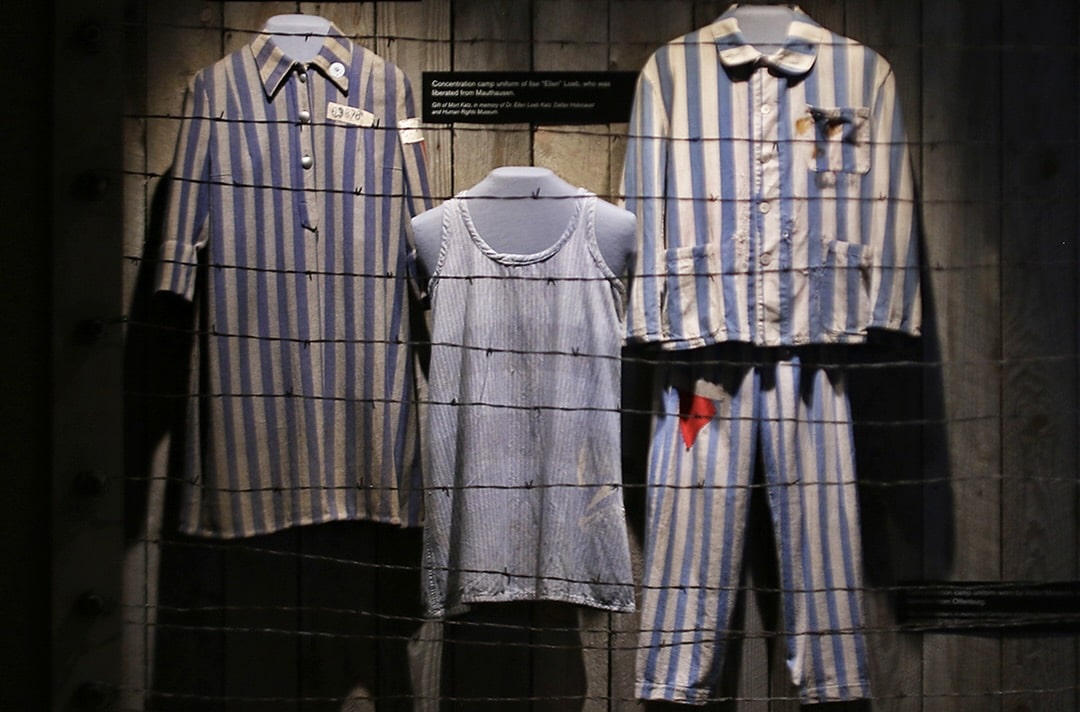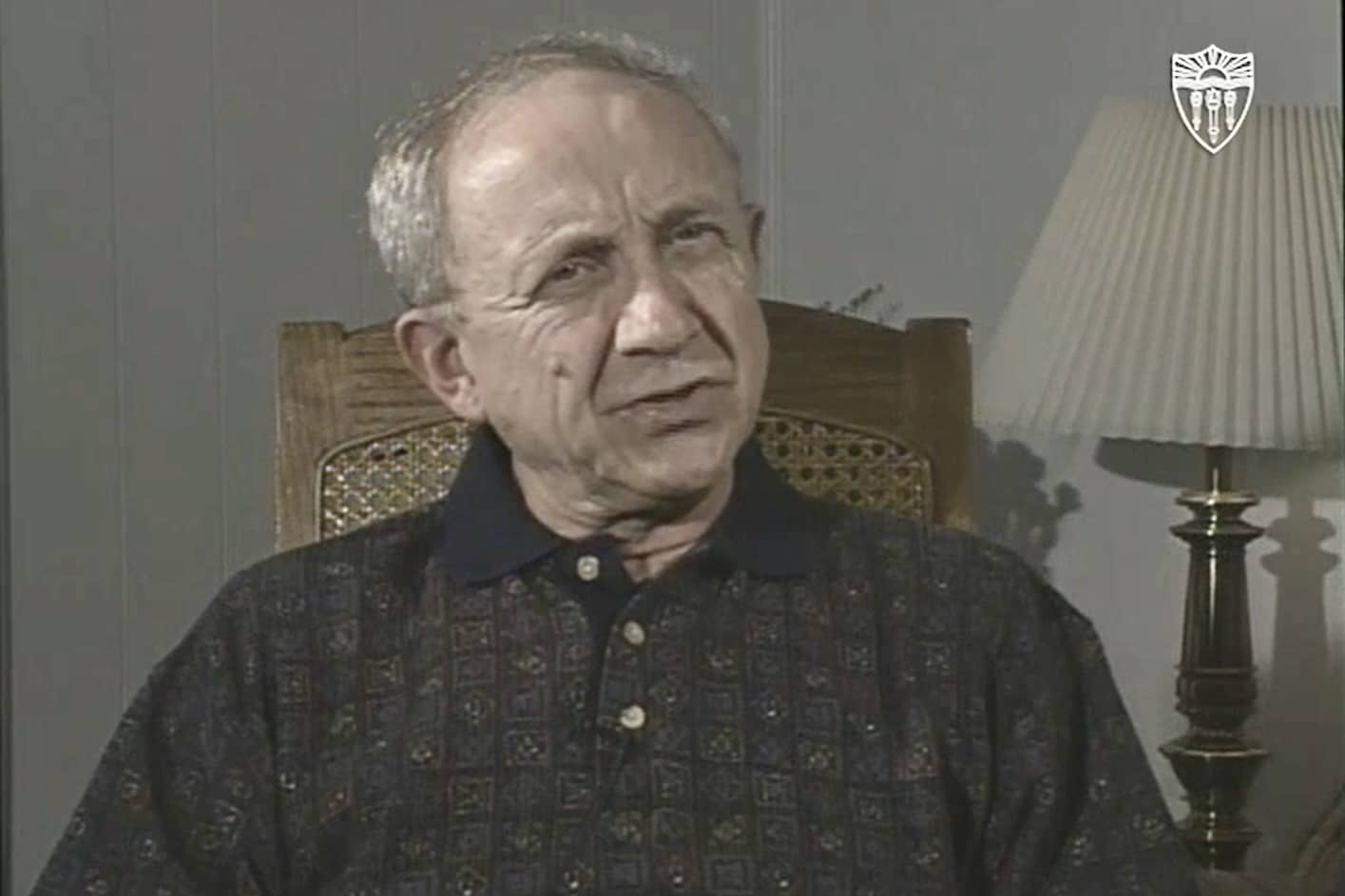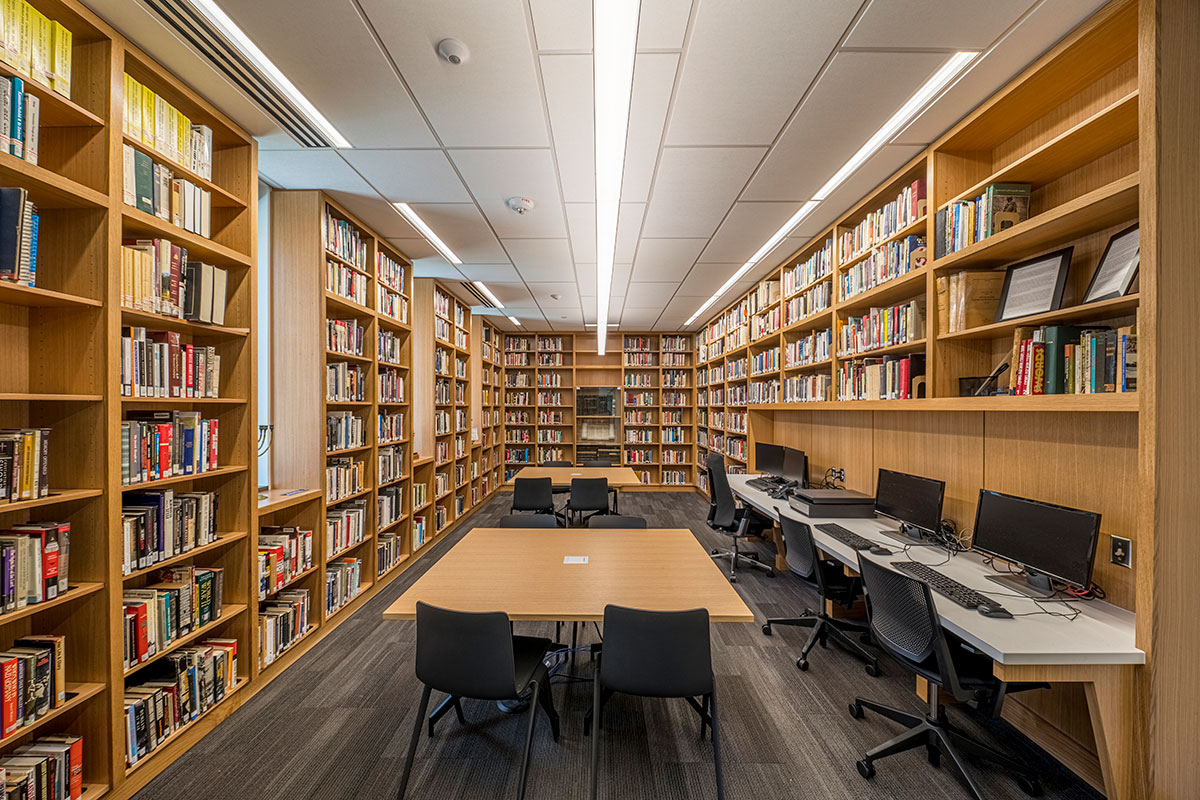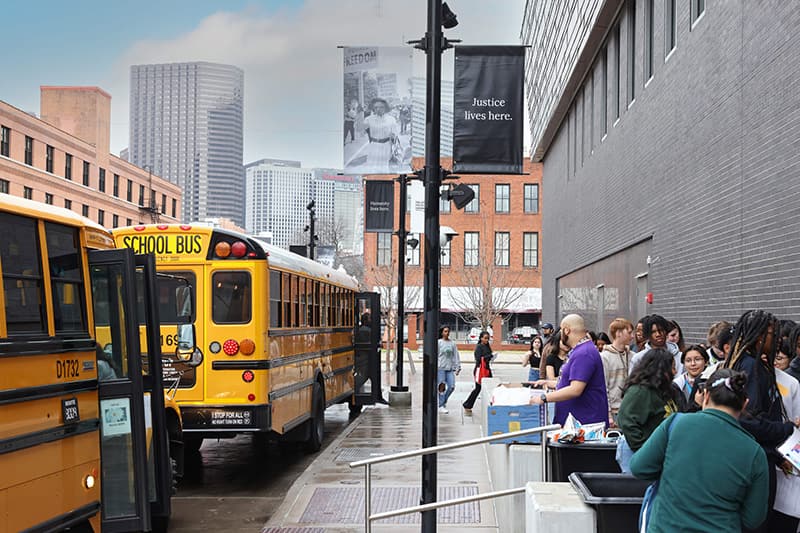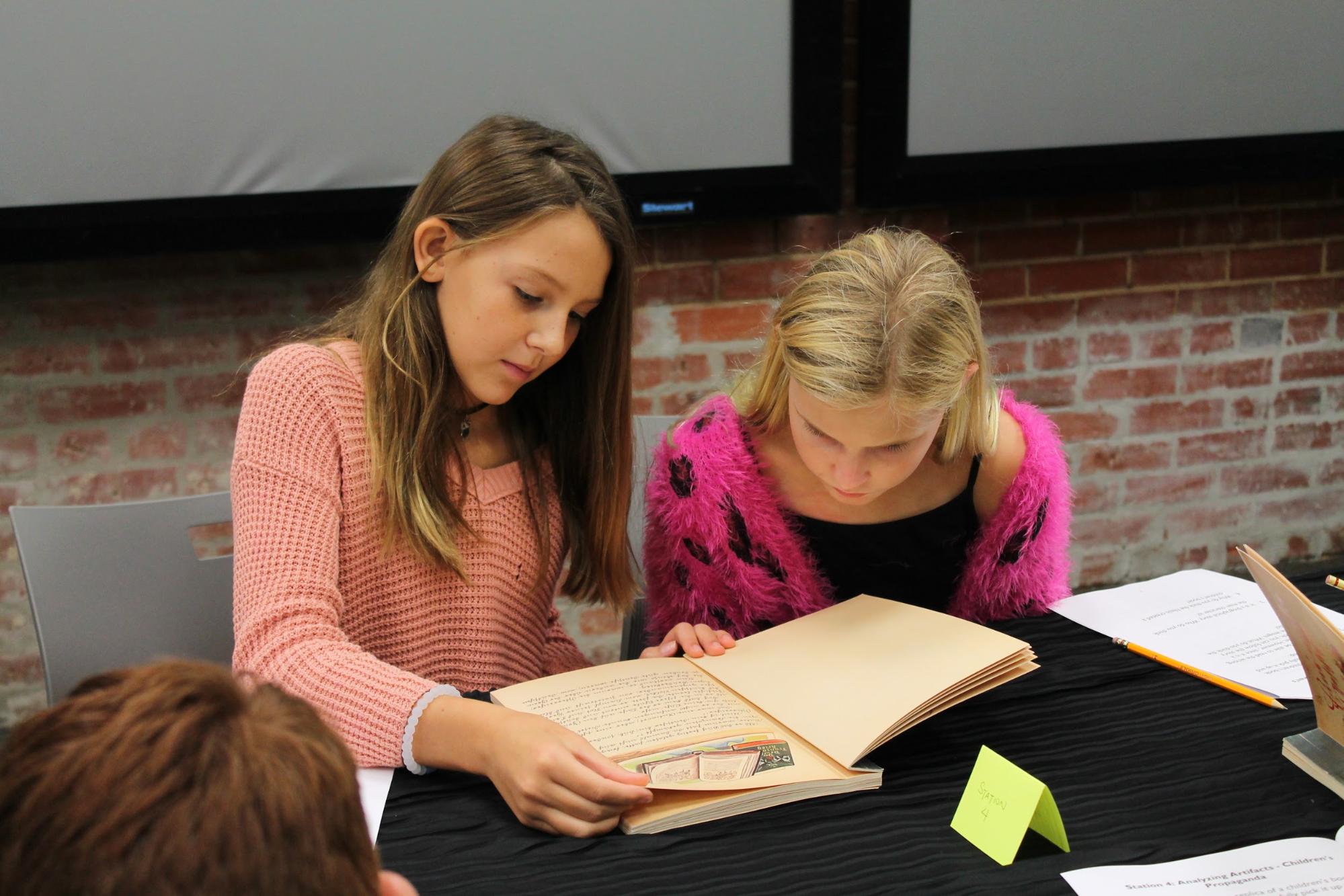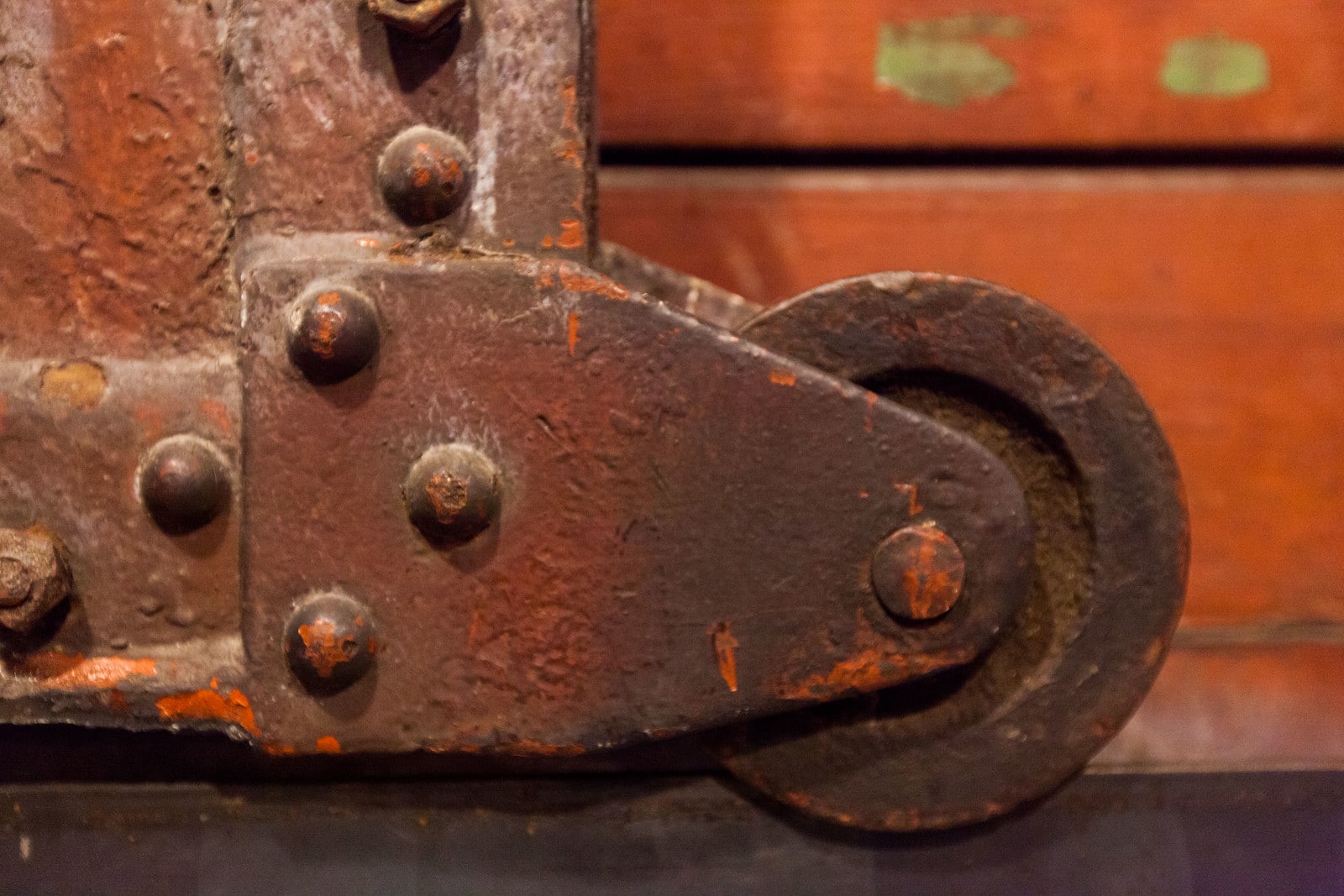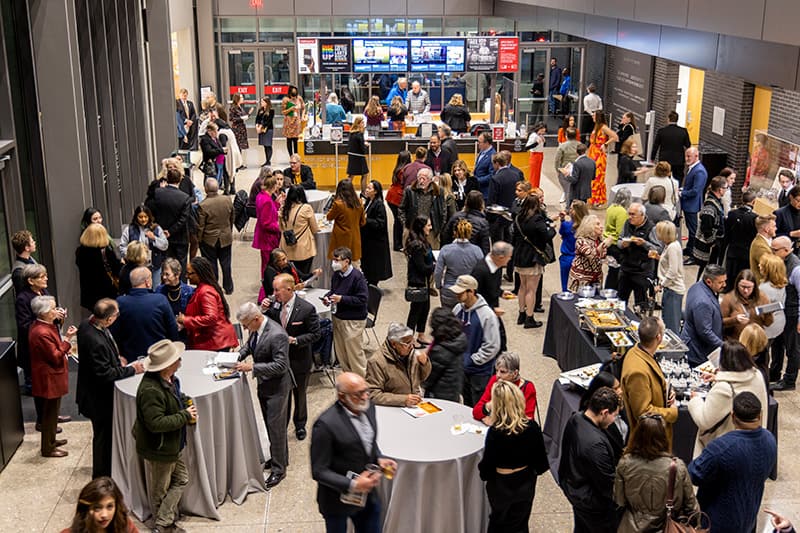Research
Collection Development Policy for Artifacts and Archives
The Dallas Holocaust and Human Rights Museum provides access to rare books, manuscripts, and artifacts while preserving them for future generations. To that end, the Museum is acquiring, housing, and preserving Holocaust related artifacts and written, visual, and audible materials that document the experiences of individuals touched by the Holocaust. At the Dallas Holocaust and Human Rights Museum, the collecting focus of both the library and archives includes materials documenting the history of human rights, with a local focus.
Papers and artifacts acquired over a lifetime may provide vital and unique information about you or your family’s experiences relating to the Holocaust and/or human rights. Certainly, these materials are important to you and your family. They also may hold importance to the community at large by documenting the particular journey you or your family has taken. By donating your personal or family papers and artifacts to the Museum, they become part of the collective memory of the community.
Holocaust-related Artifacts
The Museum accepts artifacts, photographs, papers, and publications relating to the Holocaust. Materials relating to an individual’s employment, civic, business, religious, political, educational, and social activities prior, during, and immediately following the Holocaust and World War II are of interest to the Museum.
Examples include, but are not limited to:
Photographs
Diaries
Letters and telegrams
Textiles
Memoirs
Objects
Oral history testimony
Scrapbooks
Official documents
Passports, immigration paperwork
Postcards
Religious artifacts
Topics of interest include, but are not limited to:
Holocaust survivors
Holocaust survivors’ families
Liberators
Kindertransport
Children in hiding
Displaced persons camps
Concentration camps
Rescuers
Resistance
Warsaw ghetto
Holocaust-related justice issues
Refugee experience
Deportation
Propaganda (both US and Nazi)
WWII
Human Rights-related Artifacts:
The Museum accepts artifacts, photographs, papers, and publications (including digital photographs, emails, and social media content) relating to human rights. Materials relating to both human rights and an individual’s employment, civic, business, religious, political, educational, and social activities are of interest to the Museum.
Examples include, but are not limited to:
Photographs
Diaries
Correspondence
Textiles
Digital photos
Emails
Text messages
Social media content
Memoirs
Objects
Oral history testimony
Scrapbooks
Official documents
Passports, immigration paperwork
Postcards
Religious artifacts
Topics of interest include, but are not limited to:
Human rights justice issues
Materials related to slavery
Civil rights, with a local focus
Children’s rights
Disability rights
Religious freedom
Jim Crow South
Latin American rights
Immigration / Refugee
Gender equality
LBGTQ rights
Prison reform
Freedom of speech
Economic justice
Voting rights
Donation Process
Collection policy mandates that the Museum can only accept materials as donations and not as temporary or permanent loans. The Museum cannot promise that donated materials will be placed on exhibit or used in a specific fashion as a condition of accepting the gift.
Donors are asked to sign a Deed of Gift, which is a donation agreement that formally signifies the materials become the actual property of the Museum. Our Archivist will discuss any special needs or concerns with you before completion of the donation agreement, such as restrictions on access to papers and copyright (separable from ownership of the physical item), and can provide you with personal copies of the completed paperwork.
Unlike libraries, materials in an archival repository do not circulate to insure they are preserved as long as possible. Research access to donated materials is governed by the archivist and the Museum’s policies.
In certain circumstances, a donor may be able to take a tax deduction for the donation of a collection to a repository, which should be discussed with a tax accountant or attorney. The Archivist and other Museum employees cannot give tax advice, nor are they permitted to appraise the monetary value of a donation. Donors must arrange for and bear the cost of any appraisal.
Once you have donated items to the Museum the Archivist will continue to work with you to determine the context of the materials and to identify other materials suitable for donation. You can be assured that the Museum maintains its archival holdings in a secure location and oversees the proper handling and use of these materials, and where applicable, preservation techniques are applied to the items to slow deterioration.
The Museum’s Library and Archives is under the direction of our archivist, Felicia Williamson, MLIS, CA, whose first priority is the preservation of historical materials. If you are considering donating items to the Museum, it is important that our Archivist be permitted to survey pertinent materials you may have to determine their enduring historical value. The value of records and papers may diminish if items are removed or rearranged; therefore we encourage potential donors to contact our archivist before weeding, discarding, or reorganizing their papers and records. A group of related materials can reveal so much more about the individual or family and their experience as a whole.
Contact Information
The Archivist can best assist you if you make an appointment in advance, and will also be happy to answer any questions you may have.
Felicia Williamson, MLIS, CA
Dallas Holocaust and Human Rights Museum
300 N. Houston St
Dallas, TX 75202
archives@dhhrm.org
469-399-5220
An Immersive, Interactive Journey Unlike Any Other
Please join us for a visit. Unforgettable doesn't begin to describe the experience.



